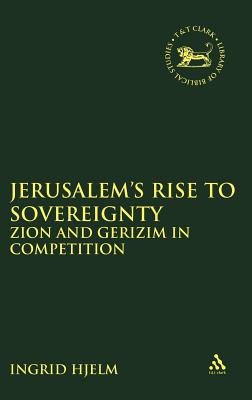
- We will send in 10–14 business days.
- Author: Ingrid Hjelm
- Publisher: CONTINNUUM 3PL
- ISBN-10: 0567080854
- ISBN-13: 9780567080851
- Format: 16.4 x 23.8 x 3.4 cm, hardcover
- Language: English
- SAVE -10% with code: EXTRA
Reviews
Description
Ingrid Hjelm examines the composition of the Books of Kings, using the Hezekiah narratives in 2 Kings 18GÃô20 as a focus. She argues that this narrative is taken from that of the book of Isaiah, with which it shares linguistic and thematic elements. In Kings, it is used with the specific purpose of breaking the compositional pattern of curse, which threatens to place Jerusalem on a par with Samaria. Jerusalem traditions are examined against theories of a late Yahwist author and the PentateuchGÃÃs origin within a Jerusalem cult. While the Pentateuch in its final form became a common work, acceptable to all groups because of its implied ambiguity, the Deuteronomistic HistoryGÃÃs favoring of David and Jerusalem holds a rejection of competitive groups as its implied argument.
EXTRA 10 % discount with code: EXTRA
The promotion ends in 19d.03:22:10
The discount code is valid when purchasing from 10 €. Discounts do not stack.
- Author: Ingrid Hjelm
- Publisher: CONTINNUUM 3PL
- ISBN-10: 0567080854
- ISBN-13: 9780567080851
- Format: 16.4 x 23.8 x 3.4 cm, hardcover
- Language: English English
Ingrid Hjelm examines the composition of the Books of Kings, using the Hezekiah narratives in 2 Kings 18GÃô20 as a focus. She argues that this narrative is taken from that of the book of Isaiah, with which it shares linguistic and thematic elements. In Kings, it is used with the specific purpose of breaking the compositional pattern of curse, which threatens to place Jerusalem on a par with Samaria. Jerusalem traditions are examined against theories of a late Yahwist author and the PentateuchGÃÃs origin within a Jerusalem cult. While the Pentateuch in its final form became a common work, acceptable to all groups because of its implied ambiguity, the Deuteronomistic HistoryGÃÃs favoring of David and Jerusalem holds a rejection of competitive groups as its implied argument.


Reviews